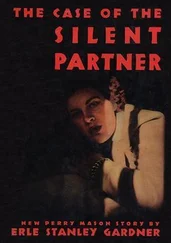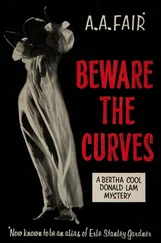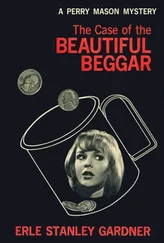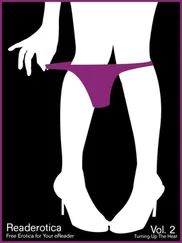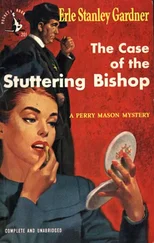I kept the interest out of my eyes. “I don’t know,” I said.
“Are you working for someone, or are you on your own?”
I said, “Well, if I could find her, there might be something in it for me.”
“How about me,” she asked, “if I found her?”
“If you know where she is, and would jar loose with a little information, there might be something in it for you.”
“How much?”
“I wouldn’t know until I asked some questions. Do you know where she is?”
“No. I wish I did. There’d be a story in it. I gather news for the Blade , you know.”
“And you’d get your wages raised?” I asked.
She said, “No.”
I said, “I might be able to put you in touch with someone who would pay for the information — more than the Blade would.”
“The Blade would pay nothing.”
I said, “Then I’m sure we’d make the highest bid.”
“How much?”
“I don’t know. I’d have to find out. How about the others?”
“What others?”
I seemed surprised. “Why,” I said, “the others who were looking for her.”
She said thoughtfully, “I guess I shouldn’t have made that crack about the blazed trail.”
I said, “No. The man who’s running the paper didn’t like that crack.”
She focused her eyes on a big glass mug that had evidently been a beer glass at some time in the history of the place. Turning the glass stem slowly in her fingers, she asked, “How long have you lived in the big city?”
“All my life,” I said.
“Like it?” she asked.
“Not particularly.”
“I should think you’d be thrilled to death.”
“Why?”
“Being out in the thick of things,” she said, “instead of a little backwater hick town where you know everyone and everyone knows you. You can really live your life in a city. There are thousands and thousands of people, unlimited opportunities for contracts and friendships, shows to see, department store windows, decent beauty shops — and restaurants.”
I said, “There is also chiselling, traffic signals, parking limits, one-way streets, grind and noise and confusion, and as for friendships — well, if you want to be really lonely, try a big city. Everyone’s a stranger, and if you don’t have just the right kind of contacts, they remain strangers.”
She said, “It would be better that way than to see the same old faces day after day, to be living in a place that’s eaten up with dry rot, where people know more about your business than you do.”
“Do people,” I asked, “know more about your business than you do?”
“They think they do,” she said.
“Cheer up,” I told her. “You have Charlie.”
“Charlie?” she asked. “Oh, yes, I get you now.”
“If you went to a big city,” I said, “you’d have to leave Charlie behind. Remember, he likes it here.”
“Are you kidding me,” she asked, “or just showing me a good time?”
“Just asking questions. How about getting me some information I could use?”
She chopped at a little dab of ice-cream with the edge of her spoon, cutting it into little particles, and then tapping those little particles until there was nothing but a liquid in the bottom of the glass dish. She said, “Let’s see if I get you right, Donald. You’re working for someone. You’re trying to get information. If I gave you any information that was worth while, you couldn’t pay for it — not until you talked with someone.”
“That’s right,” I said.
“Then why should I tell you anything?”
“Just being friendly and co-operative,” I said.
“Listen. I don’t want money. That is, I don’t know anything that’s worth money, but I might be able to help. If I did, would you help me get a job in the city?”
“Frankly, I don’t know of any jobs. I might be able to introduce you to someone who would know of some.”
“If I helped you and then came to the city, would you — well, sort of show me the ropes?”
“If I could, yes.”
She stirred her spoon around in little circles. She said, “You’re playing a game with me. It’s your job. You’re here to find out something. If you think I have any information, you’ll try to get that information without telling me why you want it. Is that right?”
I said, “That’s right.”
She said, “All right. I’ll play the same kind of a game. If I can get anything out of you, I’m going to use it.”
“Fair enough.”
“Don’t say I didn’t warn you.”
“I won’t. You’re warning me now.”
“What do you want to know?” she asked.
“Do you know where Mrs. Lintig is?”
“No.”
“Are there photographs of her in your newspaper morgue?”
“No.”
“Have you ever looked?”
She nodded slowly, her manner preoccupied, her eyes focused on her ice-cream spoon.
“When?”
“About two months ago.”
“Who,” I asked, “was looking for her then?”
“A man by the name of Cross.”
“You don’t remember his initials, do you?”
“He was registered here in the hotel. You could look it up.”
“What did he want?”
“The same thing you did.”
“What did he look like?”
“In the forties, chunky, mostly bald, and a continuous cigar smoker. He kept the office stunk up all the time he was reading.”
“Who was next?”
“A young woman.”
“A young woman?”
She nodded.
“Who?”
“Her name was Evaline Dell. Does that sound phony to you?”
“Lots of names sound phony.”
“Well, that sounded particularly phony.”
“That must have been because she looked phony then,” I said.
She thought that over and said, “Perhaps you’re right. There was something about her that didn’t just — I don’t know, just didn’t click.”
“What did she look like?”
“I think you’ve put your finger on it. She looked phony. She looked as though she should be loud and — well, a little brazen. She wasn’t. She was quiet and very mousy, as though she were walking on tiptoe all the time. She had a swell figure, and her clothes were up to the minute, and, believe me, they were clothes that showed off the figure. But she was just a little too nice, too mealy mouthed, too virginal.”
“And she didn’t give the impression of being virginal?”
“No. You’d better look up Evaline Dell. I think she’s related.”
“Did she say so?”
“I gathered the impression she was a daughter by a former marriage.”
“How old would that make Mrs. Lintig?”
“Not very old, around fifty. I believe Evaline Dell was just a child when her mother married Dr. Lintig — a secret child.”
“That would make her around twenty-eight or something like that now.”
“About that. No one here knew Mrs. Lintig had a daughter.”
“Did she stay here at the hotel?”
“Yes.”
“How long was she here?”
“A week.”
“What did she do during that time?”
“She was trying to find a good picture of Mrs. Lintig. She bought up four that I know of, old shots from family albums. She was sending them away somewhere. They told me here at the hotel she’d posted several photographs and was very particular to get corrugated card- board for the packing.”
“Did the hotel give you the addresses?”
“No. She mailed them from the post office, but she got the materials for packing them here. The hotel people knew they were photographs.”
“Anything else?” I asked.
“That’s all.”
I said, “Thanks, Marian. I don’t know how much this will help. I hope it will help some. If it does, I might be able to get a little piece of money for you, not much, but some. The people I’m working for aren’t very generous.”
Читать дальше

